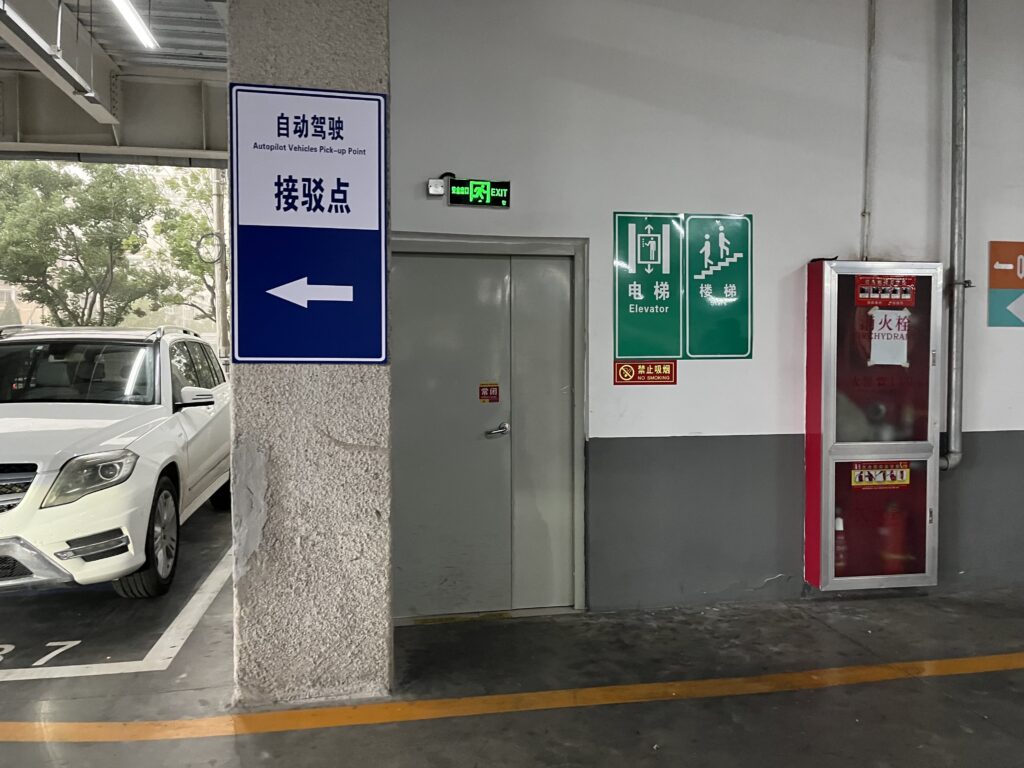Robotaxis operator Pony.ai has begun testing rides with human crew inside between a suburb of Beijing and a major high-speed train station.
CNBC | Evelyn Cheng
Ning Zhang, vice president of Pony.ai and head of the Beijing Research and Development Center, told CNBC that the route between Beijing South Railway Station and the suburb of Yizhuang is set to open to the public in the next week or two. Is. In an exclusive interview on Thursday, he referred to the pending government permits.
By the end of this year or early next year, Zhang expects the train station route to be completely driverless, with no human staff inside.
The latest route marks a significant expansion of robotaxi operations from the outskirts of Beijing to the city center. The capital is laid out with highways in concentric circles around the city center, nicknamed the “Ring”.
The suburb of Yizhuang is off the Fifth Ring Road. Beijing South Railway Station is within the Third Ring Road.
Zhang said there is a perception that Beijing will not allow robotax to pass through the Fifth Ring Road.
“Now, we're breaking that limit,” he said.
“This is a big development, and because Beijing is willing to take such a big step, it will be a very good example for the whole of China,” he said.
In November 2021, the city of Beijing allowed robotaxi operators Pony.ai and Baidu's Apollo Go to collect fares for public rides in Yizhuang, a first step toward eliminating driver costs.
Less than two years later, Beijing authorities allowed robotaxi companies to remove human crews from some public vehicles and still charge fares. Users can hail taxis using designated apps.
Beijing authorities widened the operational area for the crew in late February, extending the public-facing robotaxis to Daxing International Airport, which is near Yizhuang. Apart from Pony.ai and Baidu, AutoX and WeRide received operation permits, according to an official release.
By the end of this year, Zhang expects the city to allow robotaxi operations in the north around Beijing Capital International Airport. He said the subsequent expansion is set to cover four other railway stations in the city.
As for Pony.ai, he expects to have more than 50 fully driverless taxis operating in Beijing by the end of this year.
In the next two years, he expects Beijing to allow Robotex to operate between Sixth and Fourth Ring Roads, regardless of city district. That would require Pony.ai to be ready for a robotaxis fleet of 1,000 vehicles at scale by the end of 2025, he said, adding that the startup is working with Toyota to mass-produce the cars. .
Once a city has 500 to 1,000 Robotex, Zhang said the operation can break even. With scale, he expects business growth to “accelerate exponentially in subsequent years.”
It also depends on the pace of regulatory support. In three to five years, Zhang expects Beijing to allow robotics throughout the city.
Meanwhile, global interest in robotics has grown, with Alphabet's Waymo expanding its operations on the West Coast.
In April, Elon Musk announced that Tesla would Reveal its Robotex on August 8..
When asked about Musk's plans, Zhang said that Pony.ai hoped that Tesla's involvement in the industry could help “reshape” transportation. But in his view, he said, Tesla's full-self-driving technology was better suited for assisted driving than a fully driverless system.
As for other Chinese robotaxi operators, Zhang doesn't expect fierce competition for the next few years while the nascent industry is still catching up.
Baidu said Apollo Go had about 826,000 rides in the first quarter, up from 660,000 rides in the year-ago period. As of April 19, the total ridership has crossed 6 million.
During Baidu's latest earnings call, CEO Robin Li said the company expects its robotaxi business to narrow losses for the rest of the year, according to a FactSet transcript. Baidu's latest robotaxi vehicle costs less than $30,000 excluding the battery, he added.
Beijing's city government began allowing robotics tests at a major high-speed train station in the south of the city in May 2024.
CNBC | Evelyn Cheng
